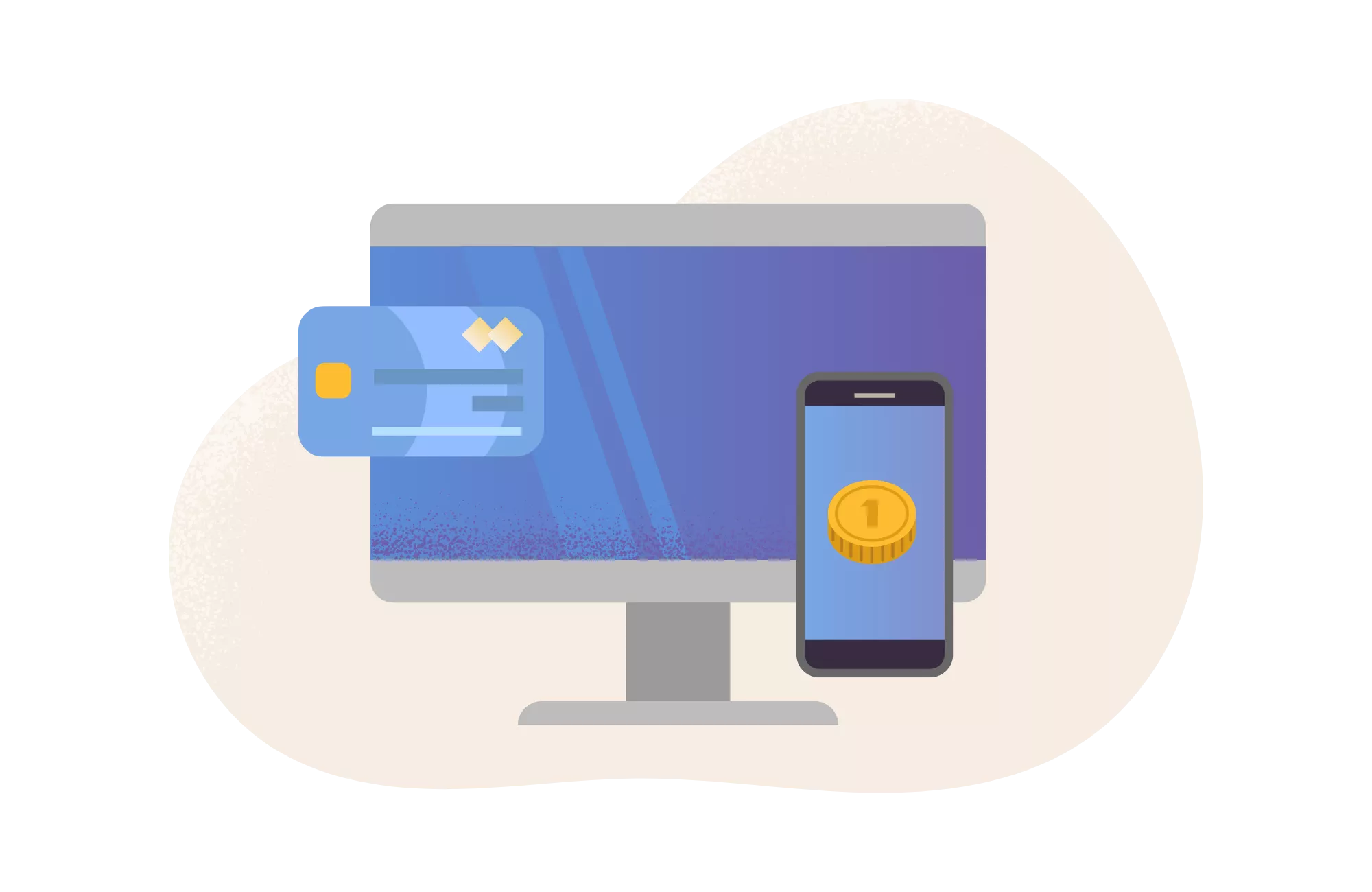If you want to start an eCommerce business, you’ll need to integrate a payment gateway with your website in order to securely accept payments. As with almost every eCommerce shop, your customers will expect a fast, seamless, and secure payment process—and utilizing a payment gateway is how you can give them just that! While integrating a payment gateway may seem like a daunting process for the less-than-tech-savvy business owner, we’re here to help! In this blog, we go over what a payment gateway is, the different types of gateways, and how to integrate a payment gateway with your website. Let’s roll up our sleeves and get informed about integrations!
What Is a Payment Gateway?

A payment gateway is a software system that lets merchants accept payments online or over the phone. You can think of payment gateways as the virtual representation of a point-of-sale (POS) system at a brick-and-mortar store.
When card information is input into the gateway—manually or through a website—transaction information is immediately encrypted. This information is then sent to the payment processor for an approved or declined message. In a matter of seconds, the payment gateway receives the message and communicates it to the customer or merchant, dependent on which party inputs the payment information.
The Importance of Payment Gateways for Merchants
In 2022, the United States recorded $1.07 trillion in online retail sales. Compared to 2021, that’s a 21.7% increase.[1]Zippia. “What Percentage Of Retail Sales Are Online? [2023]“. Accessed on March 20, 2023. This percentage alone highlights the importance of using a payment gateway to accept online payments.
Additionally, payment gateways offer an efficient way to accept payments, thus helping to reduce shopping cart abandonment. Since online shopping is expected to be speedy, any delay in payment processing for the customer can potentially result in lost sales.
Online payment gateways also provide a great user experience, allowing businesses to create custom checkout pages. Your website’s checkout page may utilize numerous features, including creating wishlists and applying discount codes. An advanced checkout page enables users to create a profile and save payment information securely for a one-click checkout process.
Understanding the Different Types of Payment Gateways
There are three main approaches to gateway integration: hosted, non-hosted, and self-hosted payment gateways. Below, we explore each so you can understand their differences.
Hosted Payment Gateways
With a hosted payment gateway, customers are redirected to a page hosted externally in order to make a payment. With this type of payment gateway, customers manually enter card details. Once the transaction completes, the customer is redirected back to your website. Hosted payment gateways are typically slower than others because of the redirection process. PayPal and AmazonPay have hosted payment gateways.
Non-Hosted (Integrated) Payment Gateways
Non-hosted integrated payment gateways allow customers to pay directly on your website through an API—short for “application programming interface”. These gateways don’t redirect customers to another page, allowing them to shop effortlessly from your online store. Merchants have full control over the checkout interface. Braintree and Authorize.Net are examples of non-hosted payment gateways.
Self-Hosted Payment Gateways
With a self-hosted payment gateway, customers pay straight from your website through ready-to-use or custom APIs. For security, data encrypts in the checkout process. Self-hosted integrations allow transactions to occur before being processed securely by the gateway. QuickBooks Commerce’s B2B Payments and Shopify Payments are examples of self-hosted payment gateways.
Choosing a Suitable Payment Gateway Provider
If you’re looking into integrating a payment gateway, be sure to look for features that will enhance customers’ shopping experience. To ensure you choose the best payment gateway for your specific operations, consider the following:
- Security: Choose a PCI-compliant gateway with fraud detection and other screening tools to prevent unauthorized transactions.
- Merchant Account Availability: You’ll want a payment gateway that provides merchant account services or can integrate with third-party payment processors.
- Mobile Support: Nowadays, most customers shop via mobile phones and tablets, so selecting a payment gateway that supports mobile payments will help you meet customers where they already are.
- Recurring Billing: It’s imperative the provider you choose is capable of saving, storing, and automatically updating card information so that recurring billing transactions process smoothly.
- Multiple Card Types: Customers appreciate the ability to use their preferred payment method. By choosing a gateway that can accept most card brands—Discover, Visa, Mastercard, or American Express—you can give your customers what they want.
- Various Currency Support: Payment gateways should be capable of handling different currencies, especially if your business operates internationally.
How to Integrate your Website with a Payment Gateway
Hosted Payment Gateways
Hosted payment gateway integration guides are usually found on vendors’ websites. PayPal, for instance, offers a connection guide to implement a code to your existing site code that turns into a button. As soon as a user clicks it, PayPal validates, collects, and sends payment information. These gateways are not open to high-risk businesses.
Non-Hosted (Integrated) Payment Gateways
To integrate your website with a non-hosted payment gateway you’ll need the help of a development team. However, some non-hosted payment gateways have step-by-step guides to connect to your website using an API method. This requires unique credentials from your payment gateway to be input into the setting on your website builder.
Self-Hosted Payment Gateways
Self-hosted payment gateways are provided by the eCommerce platform you’re using. This means there’s no integration process, though you may have to pay for it to be an add-on service. These payment gateways are typically faster than others because it’s already on the platform. However, platforms like these don’t allow high-risk industries to use their services.
How PaymentCloud Can Help with Payment Gateway Integration
eCommerce sales are rapidly increasing and the digital economy is becoming a norm. To remain competitive, it’s time for you to incorporate a secure payment gateway that offers various features and supports merchant account solutions. Fortunately, PaymentCloud is here to help you remain competitive. Our user-friendly payment gateway solutions can easily integrate with your website. Moreover, these customizable solutions cater to your business’s specific needs at an affordable rate!





